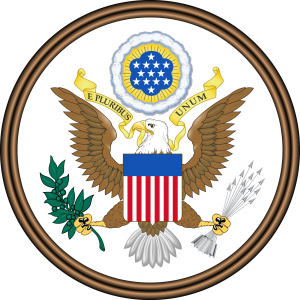This was published by The Humanist for the Humanist Network News on June 9, 2010.
There are thousands and thousands of supernatural beings that people have believed in over time.
Here are some of the ones that start with the letter “A” (feel free to skim):
A, A’as, A’ra, A-a, Aa Maakhuer, Aabit, Aaghu Gugu, Aah, Aahmes Nefertari, Aakuluujjusi, Aasith, Aataentsic, Aatxe, Ab Kin Xoc, Aba khatun Baikal, Abaangui, Abaasy, Abaddon, Abandinus, Abarta, Abassi, Abat[t]ur, Abeguwo, Abello (Abellio), Abeona, Abere, Abgal (Apkallu), Abgal, Abhijit, Abhijnaraja, Abhiyoga, Abira, Abnona, Abora, Abowie, Abraxas (Abraxis, Abrsax), Abu, Abuk, Abunciada (Abondia, Habondia), Abundantia (Abundita), Abziu, Acala, Acat, Acatl (Omacatl) , Acaum (Ah Can Cum), Acaviser, Acca, Acca Larentia, Accasbel, Acchupta, Acco, Achelois, Achiyalatopa, Achlae (Achelous, Acleloos, Aclelous), Achtland, Aclla, Acna (Akna), Acolmiztli, Acolnahuacatl, Acoran Gran Canary, Adad, Adamanthea, Adamisil Wedo, Adam[m]as, Adaro, Addanc, Adekagagwaa, Adeona, Adeos, Adhimukticarya, Adibuddha, Adidharma, Adimurti, Aditi, Adityas, Adonis, Adonis, Adrammelech, Adrastea, Adrasteia, Adro, Adroa, Adsullata, Aea, Aeacoc, Aebhel (Aeval), Aebhel Afekan, Aed, Aedos, Aegeria, Aegir, Aelus (Aiolos) , Aengus, Aeolos, Aequitas, Aericura, Aerten (Aerfen, Aeron), Aesculapius (Ascelpius), Aesir, Aesma Daeva, Aestas, Aesun, Aether, Aetna, Aeval, Afekan, Afi, Afreet, Ag’o, Agaman Nibo, Agamede, Agas, Agasaya, Agathos Daimon, Age Fon, Agischanak, Aglaia, Aglibol, Agni, Agni Hindu, Agnikumara, Agnostos Theos, Agrona, Agrotera, Agu’gux, Aguara, Agwe, Agwe, Agwe, Agweta, Ah Bolom Tzacab, Ah Bolon Dz’acab, Ah Chun Caan, Ah Ciliz, Ah Cun Can, Ah Hulneb, Ah Kin, Ah Kin Xoc, Ah Kinchil, Ah Kumix Unicob, Ah Mun, Ah Muzecab, Ah Patnar Uinicob, Ah Peku, Ah Puch, Ah Tabai, Ah Uaynih, Ah Unicir Dz’acab, Ah Uuc Ticab, Ah Wink ir Masa, Aha, Ahat, Ahau Chamahez, Ahau Kin, Ahemait, Aheramenmthoou, Ahladini-Sadini (Parvati), Ahmakiq, Ahnt Alis Pok’, Ahnt kai, Ahone, Ahriman, Ahsonnutli, Ahti, Ahuic, Ahulane, Ahura Mazda, Ahurani, Ai Ada, Ai Apec Mochica, Ai Tojon, Ai Tupua’i, Aiakos, Aialila’axa, Aiaru, Aibell, Aibheaeg, Aida Wedo, Aidin, Aido Wedo, Aife (Aoife), Aige, Aijo, Ailsie, Aimend, Ain, Aine of Knockaine, Aino, Airmid, Airsekui, Airyaman, Aisha, Aisha Qandisha, Aittsamka Bella, Aitu, Aitvaras, Aius Locutius, Aizen-Myoo, Aizen-Myoo, Aja, Aja, Ajalamo Yoruba, Ajatar, Ajaya, Ajbit, Aje, Aji Suki Taka Hi Kone, Ajok, Ajtzak, Ajysyt Yakut, Aka, Akasagarbha, Akelos, Aken, Aker, Akerbeltz, Akert khentet auset[s], Akeru, Akewa, Akhushtal, Akkadia (Isara), Akkadia (Sulman[u] Mesopotamia), Akonadi, Akongo, Akras Karelian (Egres) , Aksayajnana-Karmanda, Aksobhya, Aktunowihio, Akuj Akuj, Akusaa, Akycha, Akycha, Al Kahdir N. (Kahdir), Al Lat, Al Shua, Al Uzza, Ala, Ala Ibo, Ala Muki, Alaaye (Olodumare) , Alaghom Naom Tzentel, Alaisiagae, Alako, Alalahe, Alalu Ossetian, Alalus, Alastor, Alatangana Kono, Alaunus, Alauwaimis, Albasta, Albina, Alcis, Alecto, Alecto of Eumenides, Alectrona, Alemona, Alephus, Alfhild, Alfs, Alignak, Alii Menehune, Alisanos, Alk’unta’m Bella, Alkonost, Allah, Allatu[m], Almaqah, Almha, Almoshi, Aloadae (Aloidae), Alom, Alopurbi, Alpanu, Alpheus, Alphito, Altan Telgey, Altria, Aluelp, Aluluei, Am-Heh, Ama, Ama No Uzume, Ama Terasu, Ama-arhus (Amat-Ama-arhus, Arad-Ama-arhus), Ama-Tsu-Mara, Amaethon, Amagandar, Amakandu (Sakka[n]) , Amalthea, Amasagnul, Amaterasu O-Mi-Kami (Amaterasu), Amatsu Mikaboshi, Amaunet, Amayicoyondi, Amba Dravidian, Amberella, Ambikas (Mataras) , Ambisagrus, Ame No Uzume, Ame-No-Kagase-Wo, Ame-No-Mi-Kumari-No-Kami, Ame-No-Minaka-Nushi-No-Kami, Ame-No-Tanabata-Hime-No-Mikoto, Ame-No-Toko-Tachi-No-Kami, Ame-Waka-Hiko, Amelenwa, Amelia, Amen, Ament, Amesha, Ami, Amida, Amimitl, Amitabha, Amitolane, Amm, Amma, Amma, Amma, Ammavaru, Ammit, Ammon (Amen), Amn, Amogahasiddhi, Amoghapasa, Amon (Amun), Amor, Amphion, Amphitrite, Amponyinamoa, Amset (Imset), Amsu, Amun, Amunet, Amurru, Amymone, An, An Zu, Anael, Anahita, Anahita, Anaitis, Anala, Ananke, Ananse, Ananta, Anantamukhi, Anantesa, Anapel, Anasuya, Anat (Anath), Anath, Anatis, Anatu, Anaulikutsai’x Bella, Anbay S., Ancasta, Anceta, Andarta, Andjety, Andrasta Icene, Andriaahoabu, Andriam Vabi Rano, Androgyne, Andromeda, Andvari, Anextiomarus, Angels, Angerona, Angina, Angitia, Angitia, Angpetu Wi, Angru Mainya, Angus, Angus Mac Og, Angus Og, Anguta, Anhouri, Anhur, Ani, Anieros, Anila, Aningan, Anjea, Ankalamman, Anna Kuari, Anna Perenna, Annalia, Annallja Tu Bari, Annapatni, Annapurna, Annis, Anpao, Anqet, Ansa, Ansar, Anshur (Ashur, Asshur), Antaboga, Antai, Anteros, Antevorta, Antheia, Anti, Antu, Anuanaitu, Anubis, Anuket, Anukis, Anulap, Anumati, Anunit, Anunitu, Anunnaki, Anuradha, Anus (Anann, Anu), Anwho, Anyigba, Anzety, Aondo Tiv, Apa, Apacita, Apam Napat, Apap Teso, Apate, Apaturia, Apedmak, Apep, Apesh, Apet, Aphaea, Aphrodisias, Aphrodite, Aphrodite Pandemos, Apis, Apiu, Apo, Apollo, Apolonia, Aponibolinayen, Apophis, Apozanoltl, Appias, Apsaras, Apsu, Apuat, Aquilo, Aquit, Arachne, Aralo (Aparajita, Aray), Aramazd, Aranyani, Aranzahas, Arapacana, Ararat, Araua, Arawa Suk, Arawn (Arawen, Arawyn, Arrawn), Arazu, Archons, Ard Greimme, Ardhanarit savara, Ardra, Arduinna, Ardvi Sura Anahita, Ardwinna, Arebati, Areimanios, Ares, Arete, Argante, Arge, Ari Au Tchesf, Ariadne, Arianrhod, Arianrod, Aricia, Arimanius (Areimaios), Arinna, Aristaeus, Aristatos, Arito, Arjuna, Arma, Armaz, Arna’kuagsak (Nuli’rahak), Arnakua’gak, Arnamentia, Arnemetia, Arom Kafir, Arsan Duolai Yakut, Arsay, Arsu, Artaius, Artemis, Arthapratisamvit, Artio of Muti, Aruna, Arundhati, Aruru, Arvenus, Arya-Tara, Aryaman, Aryong Jong, As, As ava, As-im-babbar (Nanna), Asa Poorna, Asalluha, Asar, Asase Afua, Asase Ya, Asbit, Ascelpius, Asertu, Asgaya Gigagei, Ashera, Asherah, Asherali, Ashi, Ashiakle, Ashima, Ashimbabbar, Ashirat, Ashis, Ashkit, Ashnan (Asnan), Ashtaroth, Ashur, Ashvins, Asi, Asiaq, Asima Si, Asintmah Athabasca, Asira, Asis Suk, Askelpios, Aslea[s], Aso, Asokottamasri, Asopos, Aspalis W., Asrael, Asratum, Assur, Astabis, Astamastara, Astapaios, Astar, Astaroth, Astarte, Astarte, Astarte, Astarte, Asterodeia, Asthertet, Astlik Georgia, Astoreth, Astraea, Astraeos, Astrik, Asuha-No-Kami, Asuras, Asurkumara, Asvayujau, Asvins, At Em, Ataa Naa Nyongmo Gan, Atabei (Attabeira), Ataecina, Atahensic, Atai, Atalacamani, Atanea, Atanea, Atar, Atargatis, Atasamain, Ate, Atea, Aten, Atete, Athena (Athene), Athirat, Athor, Athtart, Atida, Atira, Atius (Tirawa), Atl, Atlacoya, Atlahua, Atlaonin, Atlas, Atma, Atoja, Atropos, Attabeira Atahensic, Attar, Attis, Atua Fafine Tikopia, Atua I Kafika Tikopia, Atua I Raropuka Tikpoa, Atugan, Atum, Atunis, Au, Au Co, Auchimalgen, Audjal, Aufaniae, Augeus, Augralids, Auilix, Aura, Aurita, Aurora, Ausaitis, Auseklis, Auset, Austeja, Auster (Notus), Austrine, Autyeb, Auxesia, Avalokitesvara, Avatar, Avatea, Averruncus, Aversa, Aveta, Avfruvva, Avrikiti Fon, Awitelin Tsita, Awonawilona, Axiocersa, Axo Mama, Aya, Ayaba, Ayas, Ayauhteot, Ayauhteotl, Ayi’ Uru’n Toyoy’n Yakut (Uru’n Ajy Toyo’n), Ayida, Ayiyanayaka, Ayizan, Aylekete (Agbe), Ayt’ar, Ayurvasita, Ayyapan, Azacca, Azapane (Bele), Azele Yaba, Azer Ava, Azi, Aziri, and Azizos.
It is an alphabet soup of supernatural beings up there (aren’t you glad I didn’t go through the whole alphabet?). You could just about stir up some random combination of letters and come up with a god. There are even some different ones with the same name.
Some of these are creator gods; some are chief gods; some are gods of the sun or moon, some are gods of fire, water, rain, and war; some are demons or gods of the underworld; some are gods of storms and other natural catastrophes; some are gods of various human passions or sex; some are gods of the fetus, some are gods of women and children; some of the names are of whole hosts of supernatural beings; some are gods for construction workers, sailors, or other trades; some are local gods; some are gods for potato crops, wine, salmon, etc.; some gods are for toothaches or other pains and illnesses, there are even a couple of gods for bees in this list — and this is an incomplete list of just the ones that begin with “A.”
I didn’t notice a god of incontinence, but I’m pretty sure I could find one if I looked hard enough.
It is funny how you can find gods of water; gods of oceans or seas; gods of rivers, springs, and mists; gods of rain; gods of running or fresh water, etc., all from the same group of people. There seems to have been a lot of gods who were specialists in their fields…. Or should I say field? In many cases, while there might have been a god of the crops (who must have been like an overseer), you could still dig up a god of the potato crop (for example), who was just in charge of that specifically. Of course, he might have to have dealings with the god of the soil or earth, the god of the sun, and the god of the water or the rain (while appeasing the god of the storm or the god of droughts).
In other words, people seemed to have some very specific information about these beings. It wasn’t like some vague notion that there is this god that has been hanging around… or there is this god that has something to do with liquid or growing things. It is like they knew their names and specifically what their areas of responsibility were. They even seemed to know stories about them, their history, their personality types, events in their lives, other supernatural beings with which they interacted, what would make them pleased or angry, and so on. They seemed to know their gods fairly intimately, almost as if they lived around the corner and popped by on occasion to gossip over tea and crumpets.
I don’t guess most of the people reading through this list truly believe that most of these supernatural beings really exist, so where did all this information come from?
I mean, there are a lot of gods here and this is just the tip of the iceberg. That is a lot of detailed information about a lot of supernatural beings that had to come from somewhere. Where did it come from?
Where did they all come from?
If they aren’t real, if the stories aren’t true, then they must have been made-up.
Who made up all these stories?
It seems fairly evident to me (although I expect there will be some who differ), that it was human beings that made this stuff up.
Why did they make it up?
Well, there might be a number of reasons for that, but I would venture to guess the main reason was to explain what they didn’t understand.
Where did all these gods go? Why don’t most people believe in most of them now?
Could it be that as people begin to understand more and more about how nature really worked more rational explanations replaced them?
I can hear some believers making the claim (on one level or another): “But my god is different! He is much more sophisticated than these other gods.”
Yeah? In what way? Wasn’t he originally made of the same stuff as these others were, out of the imagination of the human mind? Old Jehovah, for example, started out as a tribal war god that lived on a mountaintop before he “evolved” into the omnipresent, omniscient, omnipotent, supreme creator God Being that we are presented with today. This conception is more sophisticated only in that he has made himself less available for examination and detection than he supposedly was when people were much more ignorant about the world than they are today. Although he is supposedly more powerful than he was formerly, he uses his power with such subtlety that even the best scientists can’t tell the difference between his actions and events unfolding as they would have if he wasn’t even there at all.
If all these other “lesser” gods have been exposed for the shams they really were when the light of knowledge was pointed in their direction, how are gods people still believe in today any different than these others except that they have managed to retreat into the last refuges of darkness where the light has yet to shine? They have removed themselves not only beyond human detection but beyond all human reason as well. They have become increasingly irrelevant and nonsensical. Yet despite all this, believers claim to know some fairly intimate details about their histories, their natures, their personalities, their desires, what makes them pleased or angry, their plans, how they want us to act, what they have in store for us, etc., etc., but they don’t want to define their god, no sir. It is “beyond human understanding and reason,” they will say.
I see no good reason to take these claims any more seriously than the claims made before about all the other gods.
We haven’t found proof of one supernatural being yet, out of all the ones that now seem to have been demoted to the mythological realm. If we had run across at least one or two of the lesser ones when we were learning about our universe, it might make sense to think we might run across some more powerful ones later. We’ve never captured a demon to study, or an angel that has fallen from the sky. We haven’t ever turned up even an elf or a fairy or any other supernatural thing ever. It looks like in all this time we might have found one scrap of irrefutable evidence of something or anything that was supernatural: a magic wand, a genie in a bottle, a magic hat with an unlimited supply of rabbits….
Finding something like that wouldn’t necessarily prove or disprove a god, but it might demonstrate that supernatural things were at least possible.
Not only is it the case that there is no empirical evidence for whatever god you might believe in, there is no evidence for any god, or gods, or supernatural beings, or supernatural things, or any evidence whatsoever that the word “supernatural” might mean anything more than the word “imaginary.”
If we can’t tell the difference between something that is supernatural and something that is imaginary, then why should we give any more respect for people’s claims of knowledge about a supernatural god than we give for other people’s claims about an imaginary friend?






